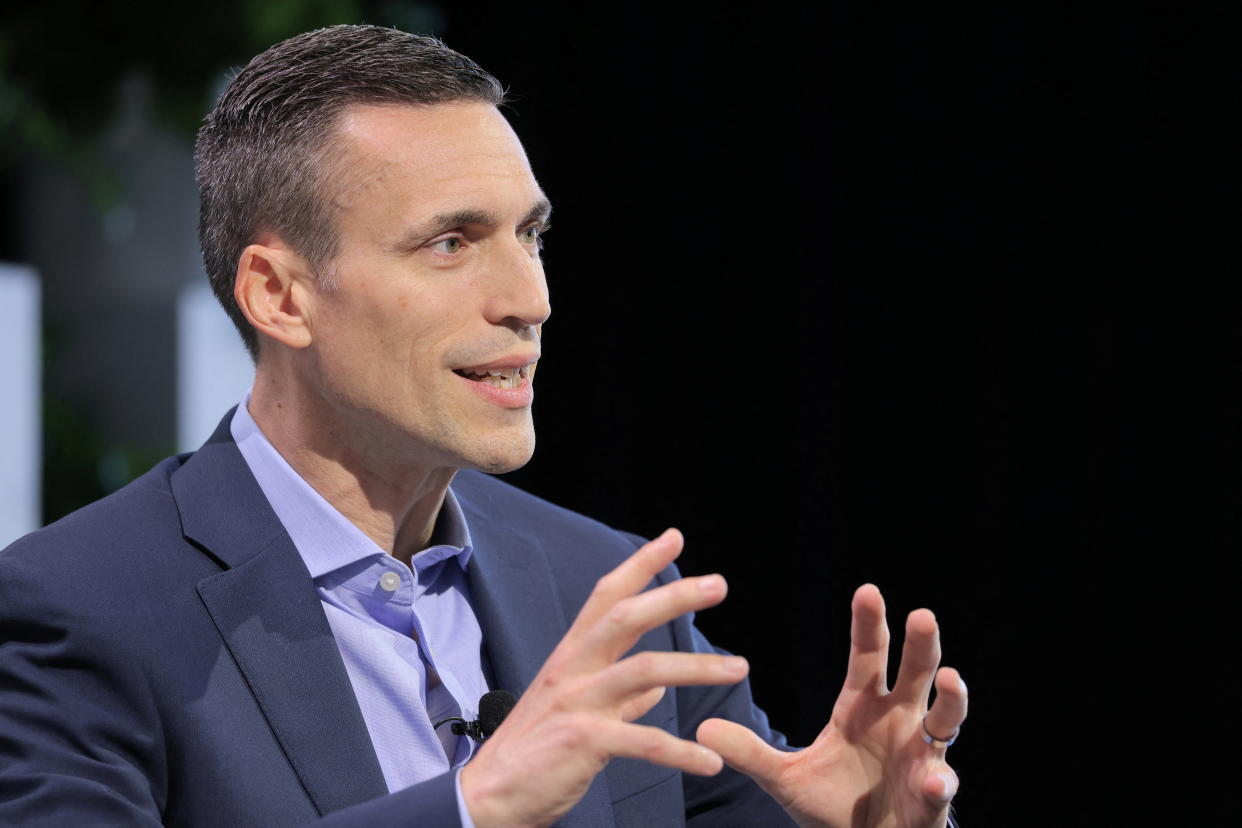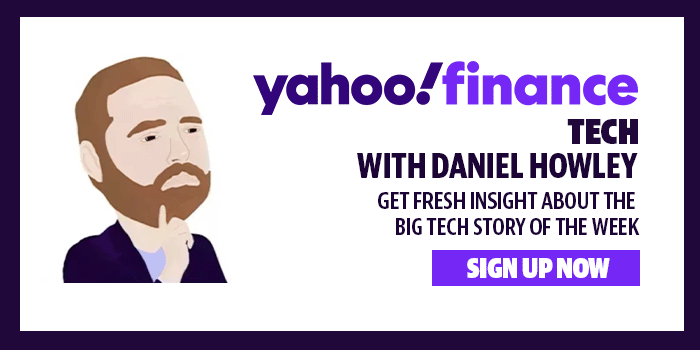Microsoft's AI software is gaining traction with enterprise customers
Microsoft (MSFT) says more of its customers are signing up for and using its generative AI-based Copilot software, a sign that its AI investments are beginning to pay off.
The tech giant is pouring billions of dollars into its AI efforts as it seeks to spread the technology across its Azure-based cloud offerings, suite of productivity products, and Windows operating system.
And according to Jared Spataro, Microsoft’s corporate vice president of AI at work, the company is seeing sizable gains in usage of its Copilot for Microsoft 365.
“Last quarter, the number of Copilot for [Microsoft 365] customers increased by more than 60%, which is great because we were already off to the races with that,” Spataro told Yahoo Finance.
“Daily users more than doubled, and we love that trend. When we start to see that type of intensity of usage doubling, it means that you're really onto something,” added Spataro.
During its most recent earnings report, Microsoft announced Intelligent Cloud segment revenue, which includes its Azure services, of $28.5 billion. That was just short of Wall Street’s expectation of $28.7 billion. And while that was a 19% year-over-year revenue increase, investors reacted negatively to the news, sending shares lower following the earnings announcement.

Though Microsoft’s stock price has rebounded, it’s still up roughly 1.5% over the last six months, compared to rival Google's stock (GOOG, GOOGL), which is up more than 20%.
Microsoft’s near miss shows how fine a line hyperscalers and software vendors must tread between investing in AI and showing that those investments are paying off.
According to Spataro, the number of 10,000-seat subscriptions for Copilot for Microsoft 365 has doubled with big-name organizations including Capital Group, Disney, Dow, and Novartis. Microsoft, however, didn’t provide exact information on daily or monthly active user numbers or how many Copilot for Microsoft 365 licenses it’s sold.
The key to Copilot’s success is proving that it saves enterprise users time on tasks, whether that’s reducing the length of meetings, cutting down on how long it takes to sort through emails, or helping to brainstorm ideas.
So far, Microsoft says its customers are seeing results. Networking and cybersecurity company Lumen’s employees are saving four hours per week in work using Copilot, which should result in a $50 million annual savings. Cognizant, for its part, says it’s seen a 10% reduction in time spent on emails and a 27% increase in employees ending meetings early, Spataro explained.
It’s not all good news for Microsoft, however. In February, the Wall Street Journal reported on customer reactions to Copilot, with some users complaining about the software’s tendency to make mistakes in scheduling or summarizing meetings.
According to a Morgan Stanley research note seen by Business Insider, an executive at a pharmaceutical company that was using Copilot canceled an upgrade it ordered for the software, saying the price didn’t match the value they were getting out of it.
Spataro, however, says Microsoft has performed its own six-month study of 60 companies and found that those firms saw a 50% decrease in email usage thanks to Copilot. Microsoft also says it performed a survey of 1,300 Copilot users and found that it typically takes companies 11 weeks and they need to see a time savings of at least 11 minutes per day for their Copilot habits to stick for the long term.
“This is a moment of kind of reprogramming how work gets done,” Spataro said. “It is not just an incremental change.”
In a separate Morgan Stanley research note, analysts found that 94% of chief information officers surveyed said they expect to use Microsoft’s generative AI services over the next 12 months. That’s up from just 47% in the second quarter of 2023.
Microsoft isn’t alone in its race to bring generative AI-powered software to its enterprise customers. Google is also offering its Gemini for Workspace to customers, while Salesforce is pushing its own generative AI software as well.
Microsoft is also in the midst of rolling out Copilot-based updates for its Windows operating system, including its Recall feature, which was initially pulled from release due to security concerns.
Microsoft will need to continue building out its base of Copilot users as it works to take market share in the space and ensure it holds onto its leadership position in enterprise software. That said, the generative AI revolution is still in its early stages, and Microsoft’s rivals are circling.
And with investors paying close attention to Microsoft’s AI moves, it will need to consistently deliver on its AI goals if it’s going to succeed in this new era of computing.
Correction: The number of 10,000-seat subscriptions for Copilot for Microsoft 365 has doubled. The article originally said 1,000 seats.

Email Daniel Howley at dhowley@yahoofinance.com. Follow him on Twitter at @DanielHowley.
Read the latest financial and business news from Yahoo Finance.

